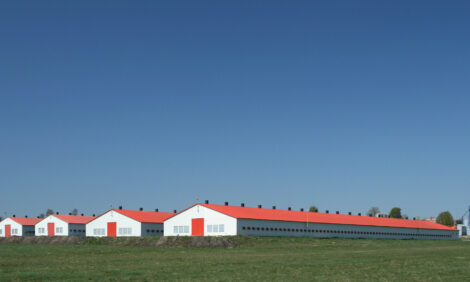



Vegetable Protein Key for Future Protein Supplies
UK - Scientists at Aberystwyth University’s Institute of Biological, Environmental and Rural Sciences (IBERS) are playing their part in addressing the UK protein deficit through a five–year research project valued at £2.15 million.As consumers increasingly switch from largely vegetable based diets to consumption of more meat and dairy, global demand for animal protein is predicted to rise by 85 per cent by 2050 driven by population growth and increasing affluence in developing countries.
As a result, demand for vegetable proteins as animal feedstock has risen, and the UK currently faces a shortfall in domestic vegetable protein production capability.
Increasing reliance on imports poses potentially significant supply and economic risks to the UK due to the combined effects of climate change and rising global demand.
Additionally there are growing concerns over the environmental sustainability of increasing production of South American soya, which currently accounts for over 90 per cent of EU protein imports.
Increasing domestic vegetable protein production is key to mitigating supply and economic risks and providing a robust foundation for the future supply of sustainable protein in the UK.
Dr Athole Marshall, Leader of the Public Good Plant Breeding Group at IBERS said: “This research looks at increasing the amount of forage based protein that can be grown "on-farm" in the UK.
"Red clover is a high protein forage, but yield is erratic due to lack of resistance to Sclerotinia fungus and stem nematode for which there is no chemical means of control. We will apply molecular techniques to develop varieties with improved resistance to these pests and diseases.
It also aims to improve the efficiency with which farm animals convert plant protein into animal protein by increasing the availability of high sugar grasses.
Significant advances have been made in the development of perennial ryegrass varieties with high levels of water soluble carbohydrate (also known as ‘high sugar grass’ or HSG), a trait which has been shown to improve protein utilisation by ruminants.”
However some HSG’s are associated with a lower than acceptable seed yield which makes seed crops of HSG varieties a less valuable crop for seed producers to grow which could limit the uptake of this valuable attribute "on-farm".
This project will use molecular techniques to develop advanced lines of HSG that combine their excellent agronomic performance with improved seed yield, increasing the availability of these grasses and the efficiency of UK livestock production.








